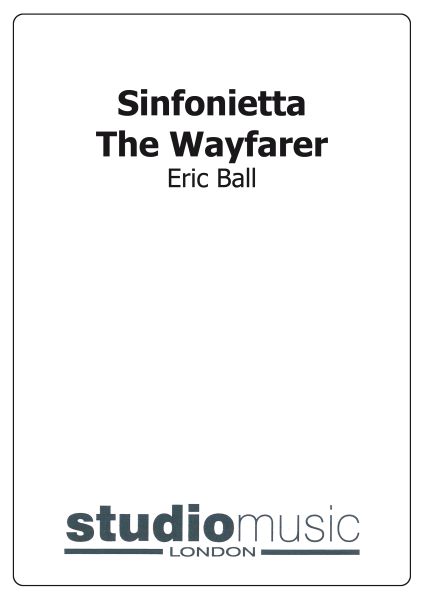Results
-
£57.95
Sea Pictures (Score Only)
An atmospheric and descriptive work, Sea Pictures is in three sections. The quiet but very difficult opening describes the sea at dawn when all is still save for the cries of the early-morning gulls and deep movements of the sea itself. The sun rises a
Estimated dispatch 7-14 working days
-
£69.95
Serenade Op.20 (Score and Parts)
The three movements include: Allegro Piacevole; Larghetto; Allegretto.
Estimated dispatch 7-14 working days
-
£32.95
Serenade Op.20 (Score Only)
The three movements include: Allegro Piacevole; Larghetto; Allegretto.
Estimated dispatch 7-14 working days
-
 £74.95
£74.95Sinfonietta - The Wayfarer (Score and Parts)
Written for the 1976 National Brass Band Championships, this work has three continuous movements: Adventure; Exile; Homeward Journey.
Estimated dispatch 7-14 working days
-
£37.95
Sinfonietta - The Wayfarer (Score Only)
This work has three continuous movements: Adventure; Exile; Homeward Journey.
Estimated dispatch 7-14 working days
-
£69.95
Suite for Switzerland (Score and Parts)
A Suite in three movements: Country Dance; Yodelling Song; Alpine Storm
Estimated dispatch 7-14 working days
-
£32.95
Suite for Switzerland (Score Only)
A Suite in three movements: Country Dance; Yodelling Song; Alpine Storm
Estimated dispatch 7-14 working days
-
 £10.00
£10.00Swedish Festival Music (Study Score)
This three-movement suite was commissioned by the Swedish Brass Band Association as the test piece for the Championship Section of their 2008 National Contest. The first movement is inspired by the magnificent Swedish hymn 'How Great Thou Art'. Indeed the influence of that hymn can be traced in all three movements. The declamatory style of the opening gives way to other, more reflective expressions of awe and wonder. A more animated section develops before a final, triumphant statement of the 'How Great' idea returns to finish the movement. The slow second movement features another much-loved Swedish hymn. The music provides plenty of scope for expressive playing, and a feeling of intimacy should be created by the use of several short solo passages. The third movement Allegro brings a totally different, dance-like mood with frequent references to a reel from the region of Uppland. This eventually brings a return to the opening subject and a final, triumphant reference to 'How Great Thou Art'.
Estimated dispatch 7-14 working days
-
£82.95
Symphonic Suite (Score and Parts)
A suite in three movements: Toccata; Aria; Fugue a la Gigue.
Estimated dispatch 7-14 working days
-
£37.95
Symphonic Suite (Score Only)
A suite in three movements: Toccata; Aria; Fugue a la Gigue.
Estimated dispatch 7-14 working days
